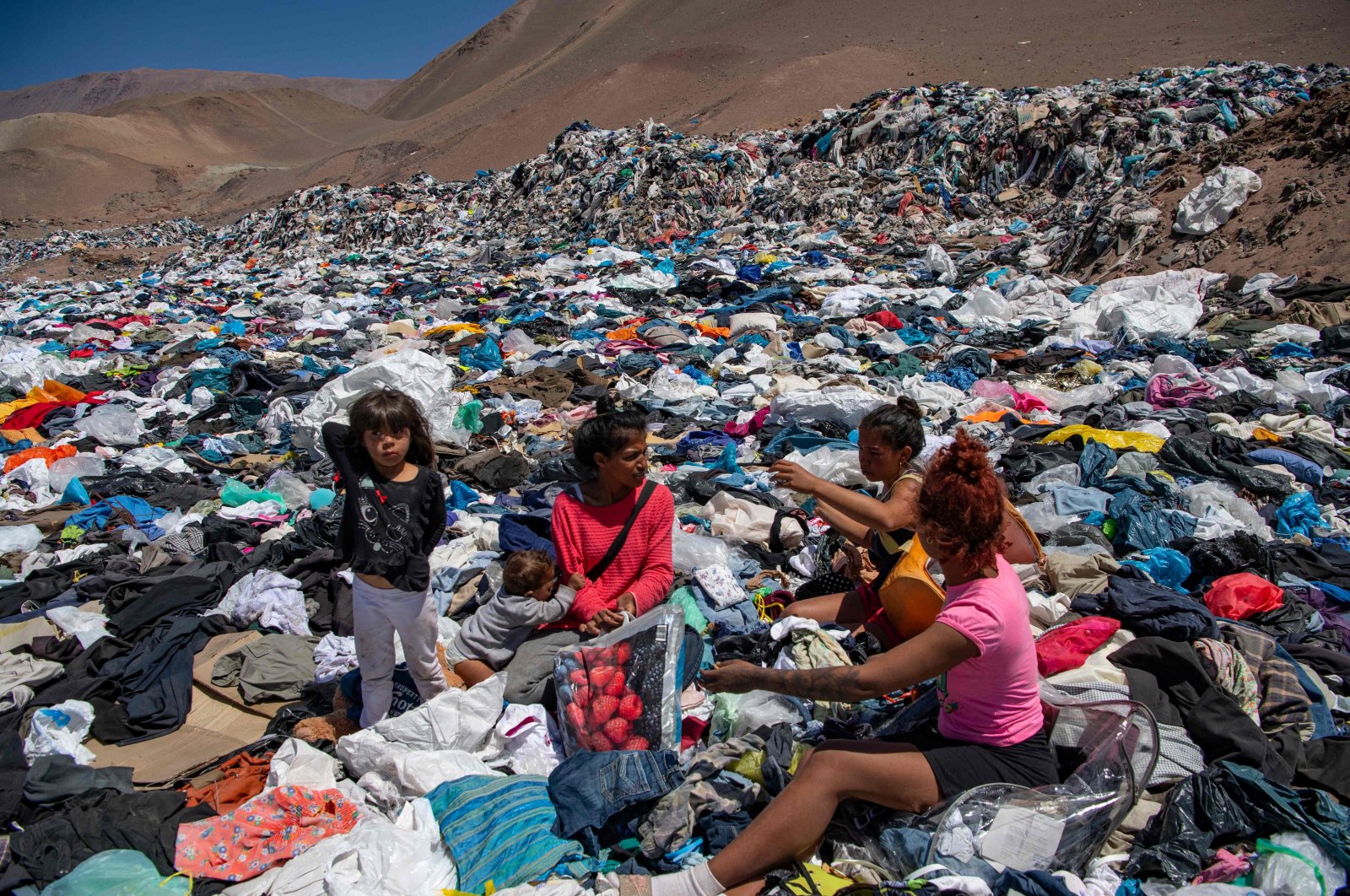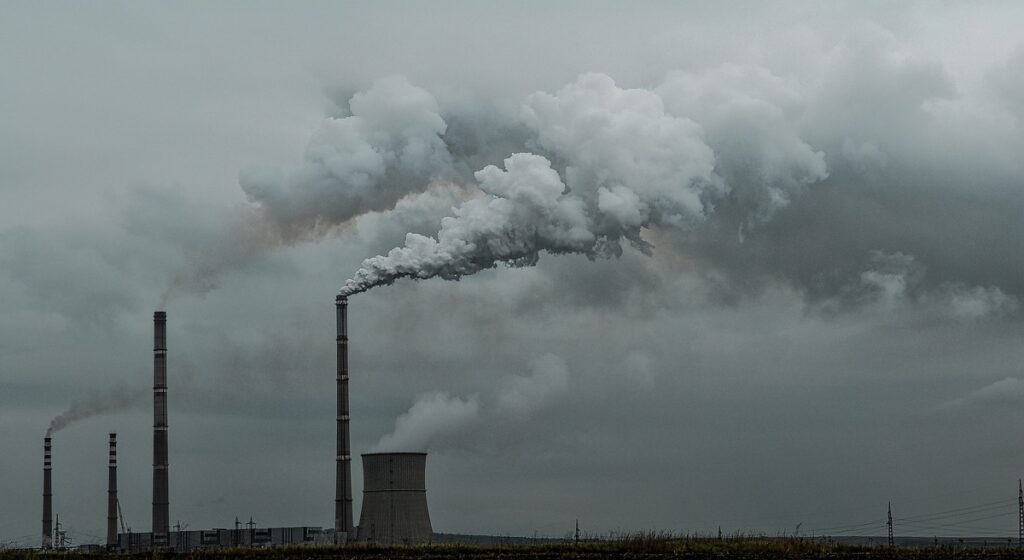The Atacama Desert is located in northern Chile and is the driest, nonpolar desert in the world. It is a barren expanse of red-orange rock canyons and peaks, with stargazing tourists coming from all over to witness the breathtaking view of the stars in the clearest night sky.
However, new dunes are forming deep within the desert, and they’re not made of sand. Immense amounts of unsold and discarded clothing have polluted the desert, creating “the great fashion garbage patch.” Mountainous piles of discarded clothing stretch as far as the eye can see, and nestled in ravines are garments with their price tag still attached mixed with other bags, bottles and garbage. Up to 39,000 tons of unwanted clothing gets dumped in the desert each year, and that number is only on the rise.
There are two key reasons for the growing clothing landfill in Atacama. The first is the combination of fast fashion and an increase in the global population’s consumption habits. Between 2000 and 2014, clothing production doubled, and consumers began buying 60% more clothes but only wearing them for half as long as they once did. The severe increase in consumption is caused by easy access to major fast fashion retailers, low prices and an increase in social media marketing. As individuals continue to buy more and more clothes, the overall quality of clothing has also decreased with the rise of fast fashion. Second, while the fast fashion industry holds a piece of the responsibility for the garment graveyard in Chile, globalization and trade are as much to blame.
It seems improbable that an isolated desert nearly a thousand miles from the nearest settlement would be the “dream destination” for fast fashion rejects. However, the country is also home to one of South America’s largest duty-free ports, located in the coastal city of Iquique near Atacama’s western edge. Free ports or free zones are designated areas where national laws or regulations are relaxed, such as the tax code. The activity within the area is conducted “freely,” or outside the normal activities of that nation under specifically-created rules and regulations. Duty-free ports encourage economic activity because goods are usually imported and re-exported without the usual taxes and fees. Chile’s duty-free port in Iquique was established in 1975 to generate jobs and support their debilitated local economy. Soon, Chile became one of the world’s largest second-hand clothing importers, transforming the city of Iquique. Then, the popularity surrounding fast fashion soared, and in turn, so did their imports.
Duty-free imports can do wonders for a community, and it truly revolutionized the city of Iquique. Around 2,000 businesses of all types now operate in the duty-free zone, and within the free zone, a sorting depot for textile waste has emerged.
The sorting process starts with one of the clothing import businesses that operates in the free zone importing clothing from developed countries, such as the United States or Europe. These clothes could come from companies with unsold inventory or thrift stores like Goodwill. Once the garments arrive in Iquique, workers focus on separating them into categories based on their ranging quality. The premium quality clothes are then re-exported to other countries like the Dominican Republic, Panama, Asia, Africa and sometimes back to the United States for resale.
Clothing rendered not useful by importers then travels a few miles to the dump outside Alto Hospicio, where it goes through another cycle of sorting and resale among small shops and street markets. Finally, clothing that does not sell at these markets ends up in the desert; many items are made of synthetic fibers, meaning it is nearly impossible for them to biodegrade. Scavengers search for what goods they can use and take the best pieces back to markets in the hope that they will collect a few coins.
Resale markets have been helpful in the past; however, with the mounting discards, areas like Iquique are becoming overwhelmed. Waste is continuing to pile up in the desert because sellers are unable to salvage more of the clothing that is imported due to its decreasing quality. It seems to be all linked to fast fashion, although there is one more culprit — the Chilean government.
The World Bank predicts that 3.4 billion tons of garbage will be created annually by 2050; currently, the world produces 2.12 billion tons annually. With the influx of waste produced globally, countries have adopted policies that require manufacturers to take responsibility for their products when they are no longer useful. These extended producer responsibility policies have been adopted in countries such as India, Australia, Japan, Canada and some U.S. states.
In 2016, Chile passed its version of the law called Extended Liability of the Producer, or LeyREP for short. This law makes producers and importers responsible for six categories of waste: lubricant oils, electronics, batteries, containers, small batteries, packaging and tires. A category not present on this list is textiles. Actions have been taken to add the textile category to the policy, but currently, it is not a category listed on LeyREP.
Without the proper regulations for the importation of used clothing, duty-free ports like the one in Iquique will continue to import immense amounts that sellers cannot resell. The fast fashion garbage patch will threaten the desert’s unique biodiversity and will impact the health of hundreds of citizens living nearby. As the situation worsens, several of the clothes will be burned to remove the waste and populations will be at risk of inhaling the toxic fumes. Fast fashion is on the rise, the quality of clothing is decreasing and consumption is at an all-time high. As a result, a garment’s destiny to rot in the desert graveyard among the red sands in Atacama will remain.







